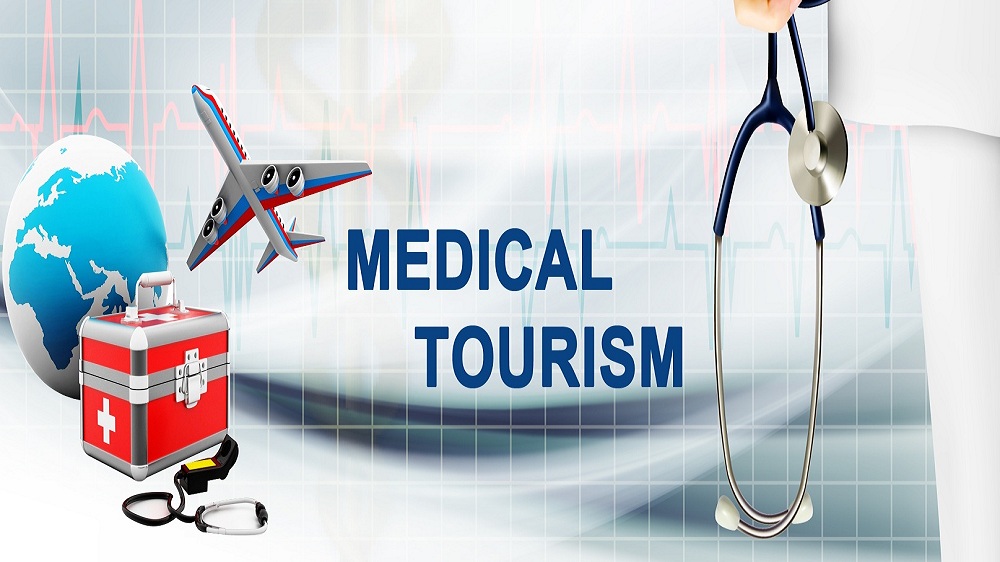
Medical tourism sector getting back in health with higher inflow of patients than pre-Covid times
Thirty-year-old Iraqi national Mohsin Ali (name changed), a victim of war, is undergoing treatment for spinal issues and massive bedsores at a private hospital in the national capital.
He was wounded in 2016 and doctors in his country had given up on him. Once the travel restrictions were lifted, he visited India this year and is in a stable condition now.
With many like Ali who were awaiting the relaxation of restrictions to fly to India for better treatment outcomes, hospitals and industry players say medical tourism is bouncing back after a lull during the Covid times.
In fact, the inflow of patients is higher than the pre-Covid times.
Cost effectiveness and presence of good hospitals in India make the country a preferred destination for many international patients, according to experts.
Danish Ahmed, co-founder and CEO of Healthtrip, a health travel company which facilitates the treatment of foreign patients in India, said only 10 per cent of its patients were able to fly to the country since flights were restricted during Covid.
“Many of our patients lost their lives because they couldn’t come to India,” he told PTI. Ahmed’s firm facilitated Ali’s treatment here.
When a few flights were allowed to operate, the government included Bangladesh and Iraq in the select countries, which helped a large number of patients, he recounted.
“Even then, the number of visas issued was very restrictive and flights were expensive,” Ahmed added.
This period also took a heavy toll on the industry with many companies either shutting down or exhausting their savings, he said.
“Now, patient flow is higher than pre-Covid and there is a large backlog of those who are rushing for medical care to India,” he said.
Fortis group of Hospitals receives around 2,800 to 3,000 international patients per month, which constitutes more than 10 per cent of the total revenue, Group Chief Operating Officer of Fortis Healthcare Ltd Anil Vinayak told PTI.
“During the pandemic, the business dropped to 10 per cent due to travel restrictions. Currently, 70-80 per cent of the medical tourism business is back, but it will still take some time to be at par with the pre-Covid level which for us meant close to 12 per cent of total revenue,” he said.
The group expects further boost in the next two quarters because of the backlog and the cost advantage that India offers, Vinayak said.
Group Medical Director at Apollo Hospitals Dr Anupam Sibal said the group receives patients from Bangladesh, Oman, Myanmar, Nepal, and Mauritius, Nigeria, Kenya, Ethiopia, Tanzania and other African countries.
He said patients also fly, though not in large numbers, from the UK, Europe, United States and Canada.
“Most international patients seek medical treatment for oncology, organ transplants, cardiac procedures, orthopaedics and neurosurgery. The leading factor encouraging tourists seeking medical help from different countries to visit India is the value-based cost of treatment,” the senior paediatrician gastroenterologist and hepatologist at the Indraprastha Apollo Hospitals said.
Some hospitals claimed their numbers are better than the pre-Covid times.
Managing Director of Aakash Healthcare in Dwarka Dr Aashish Chaudhry said the hospital has seen a 300 per cent rise in the number of patients.
“However, patients from Saudi Arabia mostly fly to Mumbai and those from African nations go to Hyderabad and Chennai, and those from Bangladesh either go to Kolkata or come here to Delhi,” he added.
India used to see patients from Afghanistan, too, but with the regime change in that country, the patient inflow has stopped.
The Healthtrip CEO said India’s key strength is quality at an “unbeatable cost”.
“In terms of cost, India can offer 80 per cent savings compared to prices in the US, Australia, Singapore or the UK. We’re offering 60 per cents compared to the UAE, Thailand and Malaysian prices. This is very significant savings for patients given the high cost of surgical treatments.
“What is also remarkable is that 60 per cent of the patients that come to India for surgery, get treated through medicines without any surgery. This is purely because of the quality and high ethics of the Indian medical community,” Ahmed explained.
Sibal echoed Ahmed’s views. Apart from modern allopathic medicine, India also offers the benefits of Ayurveda, Yoga, Unani, Naturopathy and Homeopathy, he added.
He also said foreign patients find it easier to communicate with Indian medical teams as English is widely spoken in the country.
“For non-English speakers, Apollo Group has translators,” he mentioned.
Meanwhile, the health ministry has drawn up a roadmap to connect overseas patients with healthcare facilities in the country under its ‘Heal in India’ initiative.
As part of the plan, it has identified 44 countries based on the number of patients visiting India and is working on easing medical visa norms and other requirements for patients and their companions.
The government has also drawn up a plan to augment medical infrastructure in 17 cities that see a huge inflow of overseas patients.
0 comments